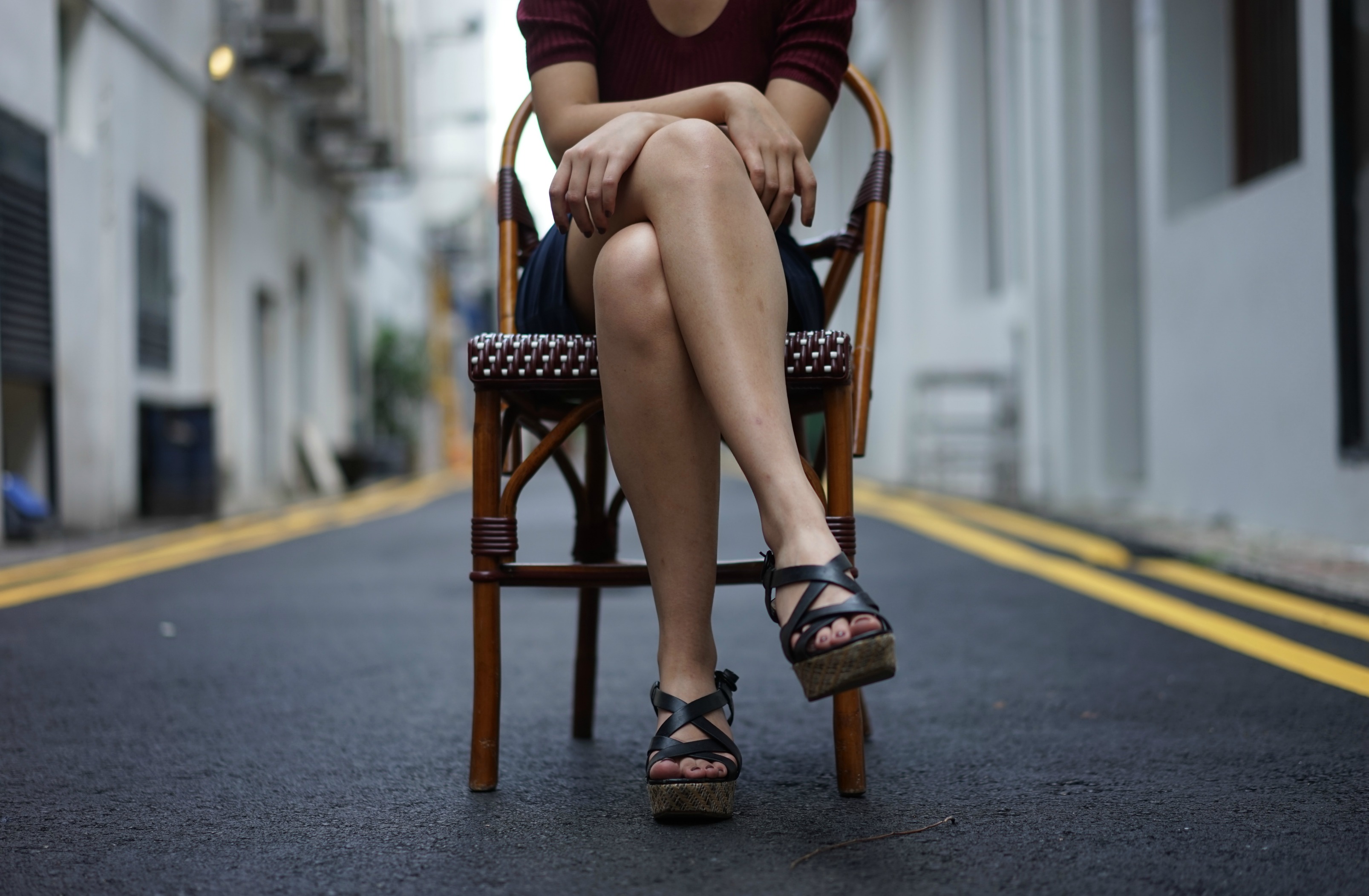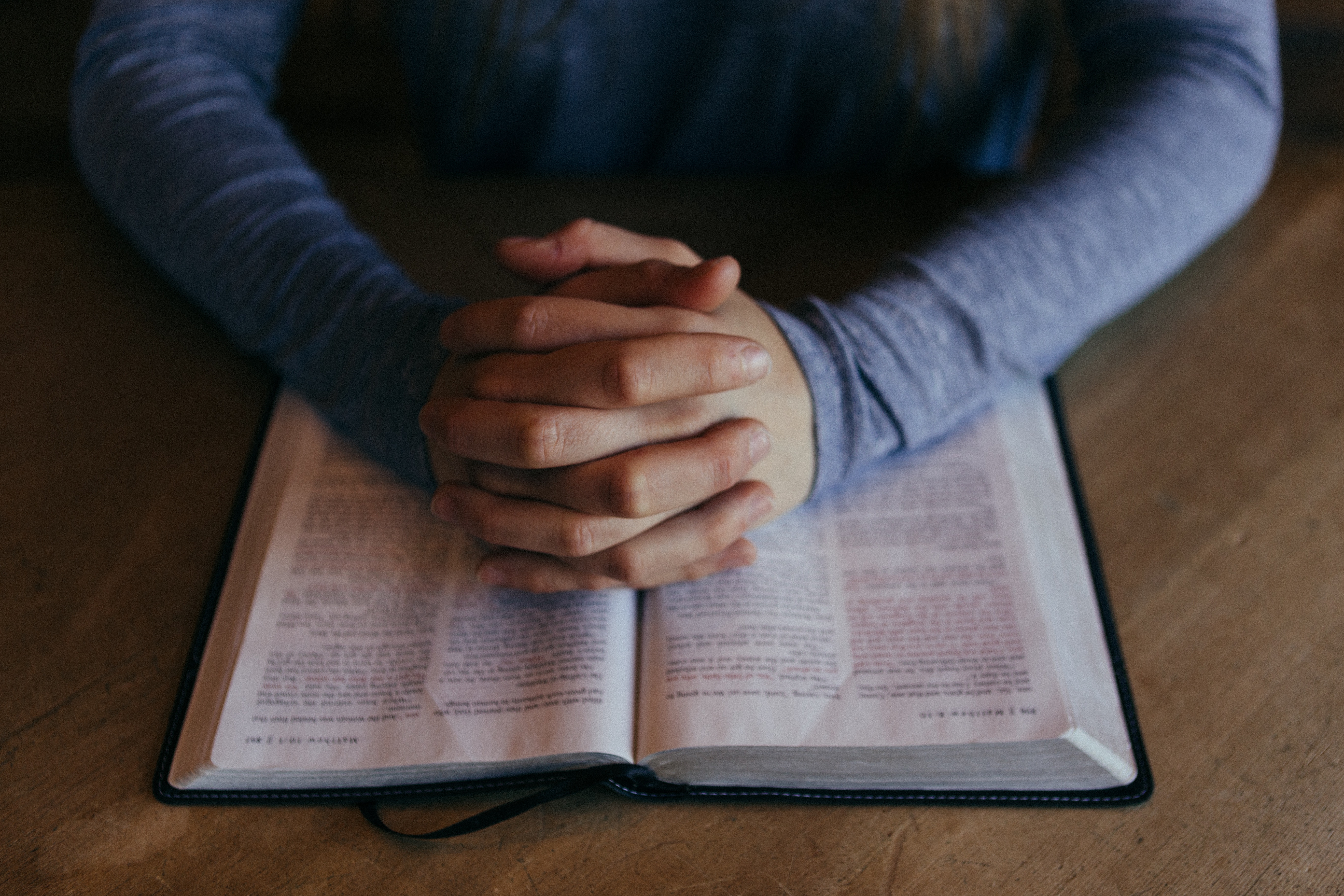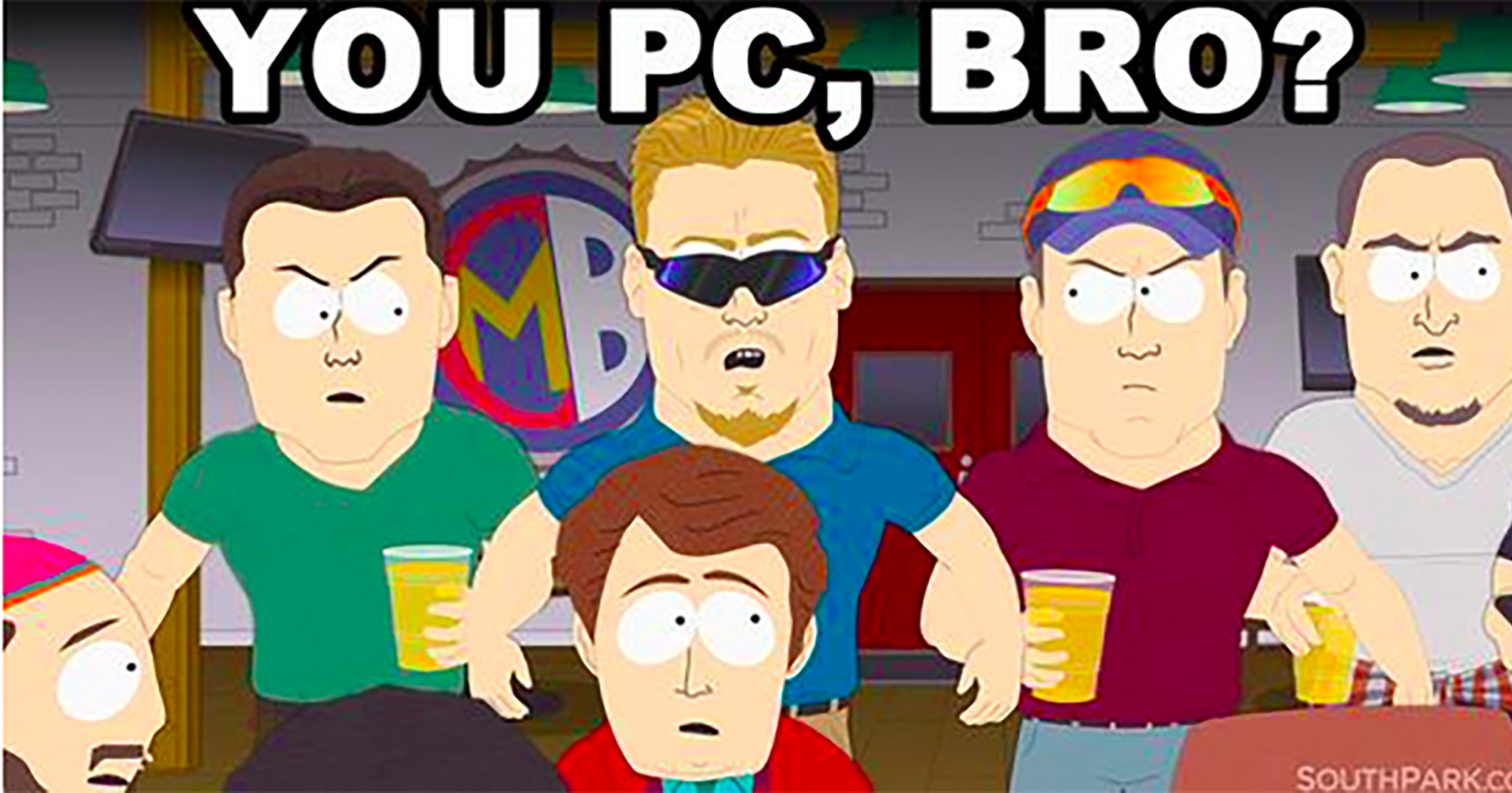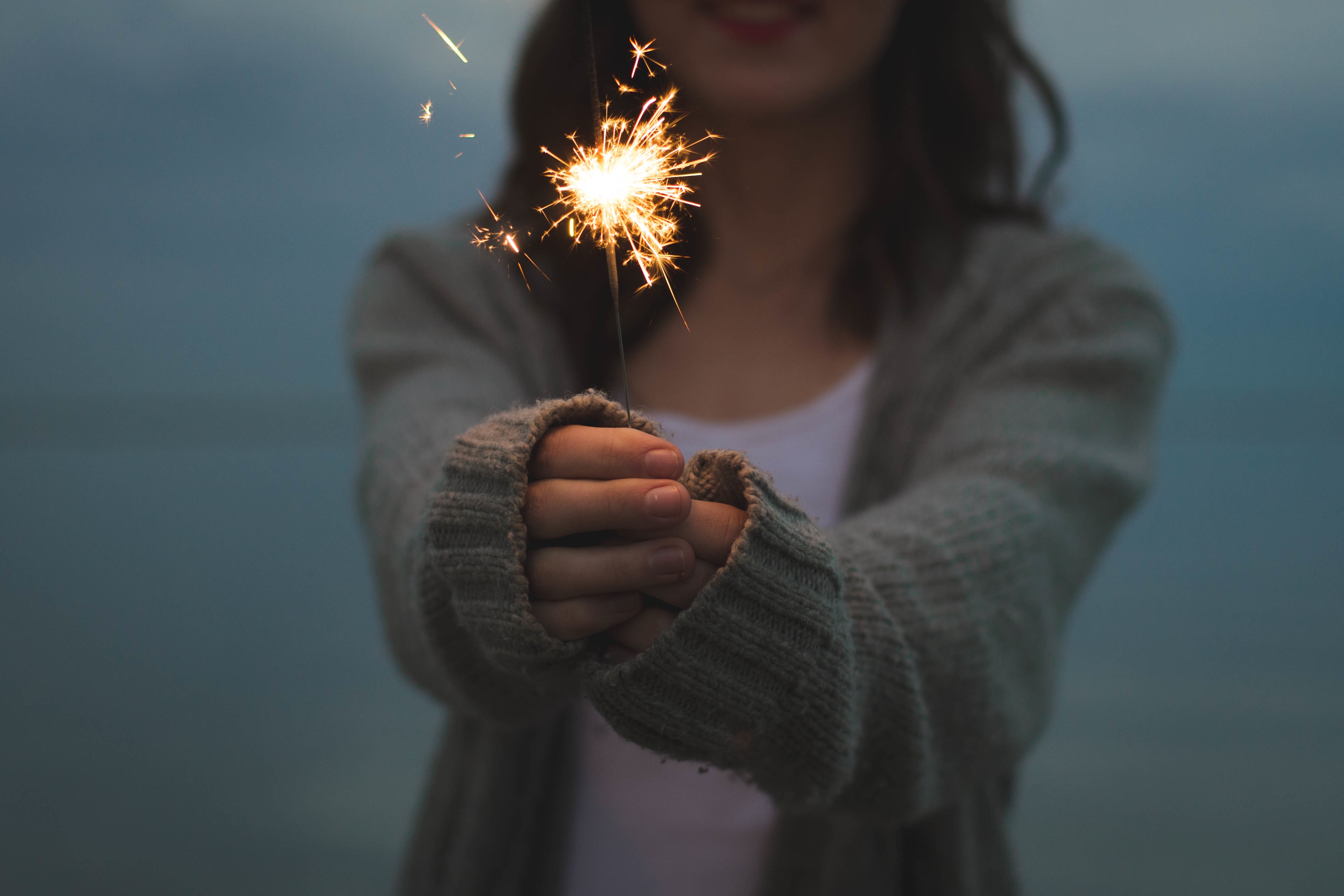“Am I slutty?”
This is a question I often ask myself.
I even ask it to my friends, “Do you think I’m slutty?”
I genuinely want to know.
They tell me no, you just have a high sex drive; no, you’re only a slut if you hit double digits; no, you’re single, it’s fine!
Some of them genuinely mean what they say, but some of them – I can tell – are just trying to make me feel better. Maybe they think it’s a trick question.
While I couldn’t care less what strangers think of me, I do care a great deal what my friends think.
Do I see myself as slutty? Well, yeah.
What else do you call someone who sleeps with people they’re not in relationships with, makes out with strangers in clubs, and sends nudes to boys just because they asked? I’ve slept with boys I haven’t been attracted to in the slightest. I sleep with them because I want sex, and they were available.
So, if a slut is someone who has many casual sexual partners, then I’m guilty as charged.
The Young Slut
There was a time in my life when I was bothered by this label. I was 17 and studying in polytechnic. I was hooking up with different boys from school, sending photos of myself when innocent text conversations turned into something more. I thought I was an awful person. I knew in my mind that I should not be doing this, but I also wondered why? It felt good, not just physically. It felt good to be wanted, to have your body desired. Why shouldn’t I do it? It was my choice after all, wasn’t it? Back then, people would call me a slut behind my back, and it hurt whenever I found out. Gossip like this spreads fast, and the further it spread, the more warped it would become, such that when it came back around, it was a completely different story from what had actually happened. During those day, I would get these looks from schoolmates when we passed in the campus corridors. You just knew they were talking about you, that they knew of you and the things you had done. It’s a confusing environment for a woman who is just finding out who she is and what she believes. Once, the mother of one of the boys I hooked up with caught us in the act and yelled at us. She told me I was a loose woman, and that I had no respect for their family. She might as well have called me the S-word.Staying True To Me
These days, a few years and many experiences later, the label no longer bothers me. These days, I've learned to embrace who I am, what I want, and what I believe. I've learned to embrace the fact that I am a woman who loves sex in a society where it is indecent for a woman to show any signs of wanting it. I've learned to embrace my belief that long-term relationships and monogamy isn't for me -- at least at this stage of my life. I've learned to embrace all of this in spite of the knowledge that many Singaporeans will not approve.So What If I Am, So What If I’m Not?
These days, with Tinder, Grindr, and all that becoming a normal part of our dating experiences, and with shifting attitudes towards relationships, sex, and bodies, people are less judgmental about non-committal sex and casual relationships. Still, there remains a group of people who thinks differently -- a majority that will still call the type of woman I am a 'slut', as if they were morally superior to me. They think I will give myself to anyone and for anything. They think I don't value myself enough. Little do they know that I am doing exactly what I want. There was a time when I was ashamed of being a 'slut', but in the last 7 or 8 years, I've learned that it doesn't matter. It does not define me. Maybe I am a slut, and maybe I'm not. The important thing is that it is not all that I am, and that I know who I am outside of these labels.This Is Me
We all have a choice as to how we live our lives. This is how I’ve chosen for mine. This is my body and I have the right to do whatever I want with it. Maybe monogamy works for some people. But it’s not for me. I don’t think there is a right or wrong when it comes to relationships -- only what is common and what is not. What I do think, however, is that this choice fits me now. Maybe a few years down the road, I will think differently; maybe then, I’ll choose differently. But that is for me to find out later on. Until then, it is no one’s business but mine who I sleep with, how often I do it, and why I do it. And no one is going to make me feel bad about doing what I believe is right for me.“Sometimes I just feel like smacking you in the head over and over again.”
Who do you think said that to me? If you thought my girlfriend, you thought right.
Can’t live with them, can’t live without them, am I right girls and guys? If you feel the same way about your partner, you’re certainly not alone.
And there’s a reason for that.
Misery loves company
We like to think that we seek relationships with people who make us happy, but the whole truth may be a lot stranger than that. According to psychologists, we instinctively gravitate to potential partners who we think will make us miserable. I know that sounds ridiculous, but let me explain. It all begins with our parents, from whom we first experience and learn about love and human interaction. Everything we do later in our lives in pursuit or service of love, is influenced in some way by our understanding of human relationships that we first learned from our parents in childhood. In many ways, the love we seek as adults is actually driven by a search for the rediscovery of love we felt from our parents as children, a sort of quest for that lost paradise of childhood. Our parents made us feel loved during our developmental years, so we long to feel loved again as adults. That all sounds fine and dandy, but the problem is that parent-child relationships are often far more complicated. As most of us know, no parent is perfect, and the process of parenting always involves emotions other than love. In order to be perceived as attractive, a potential partner must often display a capacity to reconnect us with our childhood feelings – all of them. These can include feelings of inadequacy, insecurity, anxiety, and yes, anger. If your parents were overly critical and distant, you might find yourself attracted to people with similar qualities, people who constantly deny you the approval and absolution you seek. If your parents were overly submissive, you might seek partners who frustrate you with their lack of initiative or assertiveness. In finding love, we often end up choosing partners who allow us to suffer in the ways we need to suffer, in order to relive the dynamics of our childhood that we innately associate with “true” love.Role Reversal
In some cases, the parent-child relationship doesn’t always manifest in our choosing partners with similar flaws as our parents. Occasionally, we take on the role of our flawed parent, and act out the same dynamic with our partner, with him/her on the receiving end of our parent’s failings. We might constantly put our partners down or leave them uncertain of where they stand in the relationship. We might compare them to others or complain constantly about their shortcomings Either way, in our relationships, we seem doomed to seeking out the fault of our parents in our partners, or to act out these faults with our partners. Such relationship dynamics are, of course, unhealthy, but oftentimes unavoidable. The cruel and slightly hilarious irony of all this is that we end up being attracted to the kinds of relationships that our upbringings leave us most woefully ill-equipped for. Those of us who are attracted to mysterious, distant individuals, are the ones least able to deal with the long silences and feelings of separation. Those of us drawn to strong-willed, agonistic partners, are the ones whose parental abuse leave us afraid of and unwilling to deal with confrontation. The failings that most draw us in, are precisely the ones that we are least able to handle.Love amidst hate
But wait, before you pick up your phone to break up with your partner, know that there is still hope. Thankfully, just being aware of all this can be the first step to a healthier, happier relationship. These vestigial ties to our unhealthy childhood relationships lie hidden below the surface, but knowing about them allows us to yank them out of our subconscious mind, and into our waking consciousness. By knowing about the troubling dynamics that drive your infuriating relationship with your partner, you can learn to break these habits, and steer your relationship in the direction you wish through present self-correction. If you’re acting out at your partner in the same ways your parents acted towards you, try putting your partner in the shoes of childhood you. How did you feel? How did you wish your parents would have treated you instead? Now, in a peculiar way, you have the power to correct the past failings of your parents. Resist the urge to be judgemental or to make an unnecessary point. Ditch the silent treatment and passive aggression. Be a nicer version of your flawed parent. If you’re finding negative traits of your parents in your partner, imagine yourself as a person with, well, better parents. In dealing with the same frustrations that your parents put you through, try imagining how a mature person without the same issues as you would deal with them. Resist the urge to fight against your partner the way you wish childhood you had fought back against your parents. Be the person you wish to be, not the person your parents raised. Perhaps the way to a better relationship lies in recognizing its connections to the troubles of our past, and accepting that we’re with our partners not just in spite of their shortcomings, but because of them. Top Image CreditI was born Muslim. I grew up in a Muslim family. While my parents weren’t the most religious of people, my upbringing was very much Muslim. I went for Friday prayers at the neighbourhood mosques, was taught to read the Quran, and would visit the mosque during Hari Raya Puasa and Haji. As a young boy, I went to religious classes every Sunday morning, where we would learn about the different aspects of the religion- it’s history, the five pillars and how to speak Arabic. I attended all my religious classes diligently and even got a certification of completion by the end of it.
Religion for me at the time wasn’t so much about belief as it was about following my parents, because that’s just how it is. You follow the religion of your parents, because they’re your parents and you’re just a child. I did as I was told; No more, no less.
Losing my religion
When I was 14 years old, a friend invited me to a Christmas party. I had no idea it was an evangelistic event until we were an hour in. The pastor was speaking about the death of Christ and its significance. It was only then that I realized I was actually sitting in a sermon. At first I thought, “Shoot, I’m trapped.”, but since I was already there, I listened as the pastor preached about the essence of Christmas. Maybe it was the music, the melody or the words of the worship songs, but somehow that all got me questioning things—questioning if there truly existed a god, because before then, even though I was Muslim, I’d never believed in a higher being; as far as I was concerned, God didn’t exist. Eventually, my beliefs shifted to the point that I started believing in an actual god – the Christian god. I had been converted.Secrets at home, judgement outside
My conversion to Christianity came with no small amount of fear. I had no idea what would become of me if my family were to find out. I was terrified, so I tried my best to keep a low profile. Among my friends, I was Christian—I even ate pork. But when I was home, I was a whole other person. I had to act the part of a Muslim. I couldn’t eat pork. When it was time to fast, I fasted at home but as soon as I was out of my parents’ sight, I broke fast. Part of the act was out of fear, but a big part of it was also out of respect for my parents and what they believed. For about 5 years, I had to lie every Saturday in order to go to church. My mum would always ask me, “why you always go out on Saturdays?” It was lie after lie, last week it was, “I’m going out to study with my friends,” this week it’s, “I’m going shopping for new clothes.” There was always this paranoia that they would find out, and I was constantly waiting for the other shoe to drop. All my friends knew I was a Christian, but not all of them responded positively to this. While most of them accepted it, there were a handful that didn’t, and who would ask me why I converted just so they could shoot me down and rain criticism on me. In school, some of my closest Malay friends would keep their distance from me. They wouldn’t talk to me, which is why I have a lot more Chinese friends now than Malay ones. About 6 years after I converted, when I was in NS, some of the people I knew would attack me because of my beliefs. One of my instructors that found out dragged me to one side after breakfast one day, while we were waiting to go back to our dormitory, and said to me, “Wah, if we’re not in Singapore, I would have killed you already. It would have been my duty to kill you.” I knew he couldn’t do anything, so I retorted, saying, “Yeah, lucky we’re in Singapore. You can’t do anything to me.” Muslims judged me, Christians judged me, even friends I knew who were neither Muslim nor Christian had something to say about it. They would say things like “Eh, like that, aren’t you betraying your own family?” or, “Don’t you think your family will be upset?” This is because there is a Muslim law that holds your family responsible for your faith. If you betray the faith, it’s on your family as well, because it means they haven’t brought you up well.And then my parents found out
Eventually, my parents found out because they found a bible in my room and that’s when all our problems began. I tried reasoning with my dad, explaining that he couldn’t force me to believe in something I didn’t believe in, and that even if I did follow him and “behaved” like a Muslim, he and I both knew that in my heart, I wouldn’t be one. But still, he would keep saying, “cannot”, “cannot”, “cannot”. Things didn’t progress and it came to a point when things became violent. I didn’t want to fight back because my dad was already getting old, so all I could do was block him as he beat me. That day, I ran out of the house half-naked, with not even shoes on; all I had on were my shorts because my shirt had torn from the beating. I didn’t know what to do because I didn’t want to fight back, but at the same time, I was about to explode, so I ran. My pastor—a Malay pastor who has also been through a similar experience—came down to talk to me and comfort me. He offered to open his home to me if things got worse, but he made it very clear that I should try all ways and means to make things right with my parents. I was prepared to run away. I told my mother that if my dad beat me up one more time, I was gone. She told me to come back, to not talk about religion for the time being and promised to make sure my dad didn’t hit me again. From that point on, my family didn’t speak openly to me about religion anymore. Neither did my dad and I speak. That went on for about 2 years.What now?
Today, 8 years on, I’ve made good with my family. They still refuse to accept the fact that I’m Christian, and from time to time, they still try to change my mind about Christianity. When news comes up on Pastor Kong Hee, they make a big deal of it, saying, “see, Christians are like that.” They raise the issue of rich pastors, and they do little things here and there to put down Christianity and lift up the name of Muslims. The more I’ve grown in my faith as a Christian, the more they’ve seemed to grow in theirs as Muslims—my mum, my dad, and my sister. While I’ve been serving and being more active in church, my mum’s started to pray 5 times a day; my dad’s been going to the mosque every day; and my sister’s been going for more advanced religious classes. This year, my parents are going on a pilgrimage to the Middle East. While there is not a war right now, I am fearful that it’s only right around the corner, like when I marry my Christian girlfriend. She might need to convert — at least according to Muslim customs — and I know for a fact that she won’t. Neither of us can fathom being of a religion we don’t believe in. Other people may disagree with me, and they are free to do so. Maybe they’ll say, “I’d rather things be peaceful within my family, and I’ll give up my belief if that’s what threatens to tear us apart.” But for me, belief matters and I cannot easily give that up.Religion in Singapore
No matter what happens in the future, I know I will stand by my beliefs. After all, I’ve already gone through so much to defend my right to believe it. Stories like mine are not all that rare. The details are different, but the struggle is the same. We face condemnation from all sides—those of the same faith as us, those of a different faith, those who know us, those who don’t, friends and family. In Singapore, by right, no one can do anything to you based on what you believe. But there are still many ways people can hurt you. Your friends can ostracize you. Your family can beat you. Everyone is free to judge you. From all I’ve heard and experienced, racial tolerance and religious tolerance are just how things appear on the surface. Sure, we can all live together, but if you strike out on your own and believe something different from everyone else—especially everyone else in your family—that’s when you realize how ugly things are, or how ugly things can get when religious differences are in the picture. At the end of the day, religion and what you believe is a highly personal matter. It is not for others to decide for you, and it is surely not something you believe simply because your parents do. The best I can do is stand by my religious beliefs while respecting those of others, whether they be family, friend or stranger. Top Image CreditThe ability to trust oneself completely is rare. For most of us, it can be rather tricky.
We all second-guess ourselves, have the tendency to not listen to our gut, and hold on to past mistakes that make it difficult for us to trust ourselves. While there’s nothing wrong with having a lack of self-trust, it might be beneficial to recognize the reasons behind it.
Have you ever done something because someone else told you to? Made decisions that weren’t entirely your own? You’re not alone.
Two sides to every coin
There are two kinds of people: Those who’ve never been taught to trust themselves, and those who somewhere along the way, have lost trust in themselves. The first kind are the ones that have never been taught to be independent. Chances are they’ve always had parents, family or friends who modeled trust. These are the people who often run around seeking advice from people (whom they hopefully trust) about their life, relationship or career. They often let someone else – be it family or friends, make decisions for them. And I’m not talking about deciding on what to wear to a date. Ultimately, no one is going to be responsible for your future except you. So doesn't it sound crazy to allow someone else to make decisions for you? Every person in your life has the potential to leave you, except you. There’s no one you can completely rely on but yourself. The second kind, the ones who’ve lost their self-trust, is where the vast majority belongs. When we repeatedly fail or give up on something, instead of beating the odds, we begin convincing ourselves that we are just a bunch of “good-for-nothings”. When we come close to even thinking about giving up, we imagine part of our mind saying, ‘I knew it, I knew you were good for nothing, loser.” There’s nothing wrong with having a little bit of self-doubt. Everyone feels it. But gone unchecked, it has a way of getting under your skin. It gives you crippling anxiety that tricks you into believing that you’re not good enough, or that you’re not worthy of something.Go easy on yourself
The problem is that many of us believe that we are the worst judge of our own character. We constantly beat ourselves up for not being good enough and let our past mistakes haunt us. But what does trusting yourself mean, exactly? And what makes it so difficult for us to trust ourselves? Trusting yourself is not just about being aware of your thoughts and feelings; it’s about expressing them. It’s knowing when you need to care for yourself first, knowing you can get up and try again when you make a mistake, and knowing what you want without the limitations of others. If we want to take our first step on the path to trusting ourselves, we have to 1) believe in our intuition, 2) take risks and make mistakes, and 3) forgive ourselves. While this may not be easy, it is absolutely essential for us to learn. The last thing we need to be doing is to stop judging ourselves based on our failures. Once we start trusting ourselves, we become less apologetic for our setbacks and less reliant on the opinions of others. We become better decision makers, because we’re only responsible for ourselves. As clichéd as it sounds, when we trust ourselves, we find ourselves in a better place.Being likeable. It's something we're taught from a young age and is quite difficult to shrug off, this idea that likeability is an essential part of being a woman. We're meant to hold back, not be overly pushy, or loud, or say too much because in order to make our way in the world, we need to play nicely. But what happens when we make nice our number one priority?
You let other people direct your relationships.
When we try too hard to be likeable, the first thing to go is a sense of agency. We’re afraid to ask for too much or be too much, so we only want from others what they appear to want from us. …at least, that’s as much as you’ll admit to yourself. It's hardly a fulfilling way to operate, whether these relationships are professional or personal. In fact, you’re doing yourself a big disservice when you invest in a person and it's a one way street.Negotiating your opinions.
Finding common ground - it’s the instinctive thing to do. Remember the rather questionable logic that if a boy picks on you in the playground, it means he likes you? Well surprise, surprise, that little adage does not fly in the real world. Whether in the workplace or on a Tinder date, nobody wants to be the first to offend. So we dish out tentatively phrased, easily digestible opinions. Things you may personally believe waver depending on the person you’re talking to. You remain quiet even when the chance to speak out presents itself. While it may be a harmless thing to do once or twice, making a habit out of diluting your views means you’re missing out on opportunities to clarify them. These are the things that shape you as a person, and talking - even disagreeing - with others can be a validating experience. Being different isn’t a bad thing.Losing your voice.
The very social media-centric terms of “mansplaining” and “manterrupting” seem like they were coined specifically for hashtag purposes, but unfortunately for us women, they describe something all too real. How many of us can attest to trying to explain something, only to have a man needlessly interrupt or take our ideas and run with them? Backing up this phenomenon, the <a href=" app tracks (with illuminating results) just how often men and women speak up while at work. For a woman to speak up at work, it involves a balancing act of Cirque de Soleil proportions. Either she voices her thoughts and is perceived as too aggressive or a know-it all, or she’s barely heard. And when a man surfaces virtually the same idea, the default is a round of head nods and approval for his fine idea. There are countless <a href=" to prove it. So, it doesn’t exactly come as a shock that more often than not, we put our heads down and decide that less is more, that it’s better to be nice than to be heard. But if the absolutely boss women of the 21st century (hello, Angela Merkel, Hillary Clinton, Michelle Obama) have taught us anything at all, it’s to not be afraid of acknowledging our own expertise. If speaking up means being a #NastyWoman, so be it!Your goals take a backseat.
Growing up, we were conditioned to put others first. We’re taught that the moral, socially responsible thing to do is to care for everyone else and when you slip into the bottom rungs of your own priority list, well, that’s pretty noble. While it's true that so much good can come out of a little selflessness, sometimes this mentality spills over into less benevolent circumstances. Like when you end up holding yourself back at your own expense - prioritising the feelings of someone who is hurting you, or feeling embarrassed about asking for a promotion you’re pretty sure you deserve. Sometimes, to put yourself first is practical, not selfish. That people have unconscious biases based on gender is a given, and you need to factor that in when you try to soften your approaches. You need to invest in yourself as much as you do others, because no way are you sacrificing your goals in an effort to be "nice". Your job isn't to make yourself likeable - it's to be your full self, someone who is honest and aware and embracing of yourself and others. It's to be ambitious and hopeful and real - basically, you just need to do you. The world will have to deal with it.https://www.facebook.com/Urbanites.co/posts/1785171758398789
In a recent <a href=" interview, President Obama was asked about his views on political correctness, and whether President-elect Trump was right to say that political correctness has gone too far.
In typical fashion, Obama offered an insightful yet measured response about the different definitions of “political correctness”, and the dangers of subscribing too fervently to an extreme interpretation of what it means to be PC.
On one hand, you have the definition of PC as simply being polite and respectful towards other people. On the other hand, there’s the definition of PC as “hypersensitivity that ends up resulting in people not being able to express their opinions at all without someone suggesting they're a victim”.
We often associate the discussion about PC culture with the USA, but, as highlighted by the ongoing Amos Yee debacle, the PC problem might be a lot closer to home than we think.
To many, the actions of Mr. Yee, who is currently making <a href=" news for seeking asylum in the US, are unforgivable and absolutely worthy of punishment. To others, however, the continued persecution of Mr. Yee remains an embarrassing stain on Singapore’s hypersensitive culture, hopelessly mired in the trappings of being overly PC.
I have to admit, I’m torn on this. Mr. Yee, while offering some much-needed challenges to our fragile sensitivities, also took a giant dump on every aspect of being PC, including the one about being a respectful, polite human being. Herein, I believe, lies the problem with Mr. Yee’s narrative; he simply took it too far.
Unfortunately, however, so did we.
We, as a society too concerned about being PC, put a teenager in prison for “hurting our feelings”. A bratty, disrespectful, annoying little shit of a teenager, yes, but a criminal? It’s embarrassing, no matter how you spin it.
Why are we so beholden to the tenets of the overly PC tribe? I believe the answer lies in a socioeconomic ideology called neoliberalism.
We’ve talked about neoliberalism before, but the big N word (not that one!) is back to haunt us once again.
In a nutshell, neoliberalism is the laissez faire approach of allowing the free market to sort everything out. In the neoliberal economy, everything is angled towards making money, everything, including political correctness.
This particularly clever line from South Park perfectly sums up PC culture:
“What is PC but a verbal form of gentrification? Spruce everything up, get rid of all the ugliness, in order to create a false sense of paradise.”
Like urban developers sprucing everything up in run-down areas with overpriced cafés and organic farmers’ markets without addressing the underlying poverty of said areas, PC culture provides a paint job of pleasantness over the undercurrents of society’s problems.
The spectacle of inclusion and tolerance is good for business. Economically, it’s beneficial for a society to offer the appearance of harmony, even if such surface-level PC does nothing to address underlying problems of intolerance. Do investors and tourists care about the deep-seated segregation between cultures in Singapore? No. They only see the tourist brochure version of a cultural melting pot with an apparently stable and harmonious populace.
Are we really helping to further understanding between Christianity and Islam in Singapore by persecuting someone mocking religion, crass and disrespectful as he may be, or are we simply deepening rifts between groups and stifling meaningful communication by putting band-aids over fractures and making everyone afraid to discuss religion outside of their own?
In an <a href=" with BigThink about PC, Slovenian philosopher Slavoj Žižek describes PC culture as an implicit form of totalitarianism. He of course doesn’t believe that we should be going around verbally abusing people, but he argues that we shouldn’t employ “coercion and scare tactics to instil a state of forced behaviour.” Žižek believes that the kinds of obscenities and irreverence that PC tries to censor – the same kinds that we persecuted Amos Yee for – are actually important to “breeding a sense of shared solidarity”. By taking our sensibilities less seriously, Žižek says, we allow ourselves to more easily find common ground with those whose beliefs diverge wildly from our own.
Perhaps, in order to grow together as a community, we should reject the tendency to get offended by anything we disagree with, and have the maturity to engage in contentious but fruitful conversation with people we’d much rather silence.
To end this conversation on PC culture, I’ll leave you with this quote from comedian Stephen Fry:
“It's now very common to hear people say, 'I'm rather offended by that.' As if that gives them certain rights. It's actually nothing more than a whine. 'I find that offensive.' It has no meaning; it has no purpose; it has no reason to be respected as a phrase. 'I am offended by that.' Well, so f*cking what."
https://www.facebook.com/Urbanites.co/posts/1784695275113104
<a href=" Image Credit2016 was a weird year, to say the least. Dumpster fire, train wreck, and flaming hot mess are just some phrases one could use to describe the events of the year in the public sphere. But for many of us, 2016 might have been a shitty year on a much more personal level.
If you’re nodding your head right now, this is for you. This is for those looking to dust themselves off and trudge on into a new year with hopes for better things.
Maybe 2016 wasn’t a great year for your love life. Maybe you met that perfect someone only to realise he/she was attached. Maybe you lost someone you really cared about to silly differences or selfish actions. Maybe your dozenth one night stand had you realising that you should put your clothes back on and start looking for something real, or maybe a troubled relationship made you want to get back out there and have some fun.
Let us remember that the most important love of all lies in accepting one’s self, because life is above all, a personal experience. In the moments when you’re alone in the shower, drifting into sleep or daydreaming on the train, you have only yourself and your thoughts to keep you company. If you can’t look in the mirror and love what you see, no one can look in your eyes and love you. Let us remember to practice self-love and strive to accept our own flaws while staying open-minded to change and self-improvement.
Maybe 2016 took a dump on your career ambitions. Maybe obstacles like studies and financial difficulties started rearing their hideous little heads and throwing wrenches into your laid-out plans. Everyone’s got a plan until reality steps in and punches them in the face.
Maybe you’re still searching for your “calling”; for that perfect job that will somehow grant you both fulfilment in life and a reasonable pay. Something that you enjoy, are good at, and can sustain you, all at the same time. And society expects you to find this magical trifecta-fulfilling job in less than a year. Screw that, am I right? I say take your damned time. If 2016 wouldn’t yield, maybe 2017 will.
Maybe in 2016 you lost sight of the goals you had set for yourself. Maybe you gave up on going to the gym, eating healthy, or whatever it is you wanted to do to improve your quality of life or become a better person. Maybe you let your goals become chores. Maybe you left your motivation behind in April.
Remember, going into 2017, that only you can set goals for yourself and decide what is good or bad for you. Don’t listen to others telling you what to do, and do what’s right for you. Ignore everything I’ve written, if that’s what you want. I don’t know you. You know you.
As Earth hurtles into yet another revolution around the sun, let us remember to keep looking forward and leave the past where it belongs. Like a driver who keeps his eyes on the road and only occasionally glances in the rear-view mirror, let us remember that our journey lies ahead of us, not behind. Let us change what we can for the better, accept what we can’t change, and know how to tell the difference. And when we’re ready to step into 2018 this time next year, let’s hope we can look back and say, “Well, that was better.”
https://www.facebook.com/Urbanites.co/posts/1783009985281633
Try as we might, it will always haunt the children.
Just as it's been over the past few years, so this year's release of PSLE results has come with the same dramatic tropes. There were calls, platitudes and ST letters urging parents to remember that "it's just an exam", and "it doesn't determine your child's future".
There was the standard scandal of parent punishing their child for not scoring high enough--this time, it involved <a href=" confiscated Nintendo DS. There was the outraged reactions, with one of the top rated comments reading <a href=" is the kind of thing that make our young children jump down from buildings". Topping it all off was the viral movement where Singaporeans shared their PSLE results, along with where they are in life now, which amounted to a whole lot of humble-bragging.
Perhaps next year, the Government will announce yet another departure from the PSLE system towards the new favourite phrase--a more <a href=" development", as was announced this year, along with the announcement that a new PSLE grading system will be implemented from 2021 onwards. Sports, character and volunteer work will become new potential criteria for admission into top schools, and all this on top of grades.
Honestly, I am cynical that all this will amount to any significant change.
Kiasu Mentality Reigns Supreme
Instead, we will probably see parents pushing their kids to excel in all kinds of sports, trying to get them into the national teams so they can become the next Joseph Schooling. Children will be signed up for all kinds of leadership programmes in a bid to develop their character. Perhaps there will be an explosion of volunteer work at various homes and hospices, as kids rush to prove their hearts for the disadvantaged members of the community. All that while having to do well in their studies. My point is that while we can try to turn the focus away from grades and onto the child's non-academic merits, at the end of the day, the Kiasu mentality reigns supreme. We've become so obsessed with grades that our only alternative to grades are even more grades. If our children are not multi-talented, Renaissance-type boys and girls, they will not thrive as productive members of society. Instead of decreasing stress levels, we give children more areas they must perform well in, hammering in the notion that at the end of the day, a child's worth and sense of identity are tied to what he can or cannot accomplish. Woe to the child who learns more slowly than the rest and is unable to excel yet in sports or their studies in time for Primary 6 or Secondary 4; a lacklustre school certificate from his first ten years of education now potentially determines where he can go from here. At this point, most roads already lead down.It All Boils Down To Socio-Economic Status
Crucially, a mere change in the PSLE marking scheme or the way children are streamed fails to account for the biggest problem that plagues Singapore's meritocracy: the uneven playing field produced by socio-economic inequality, as well as a system of meritocracy that more deeply entrenches this inequality. Both Donald Low, a senior lecturer at the Lee Kuan Yew School of Public Policy and Andrew Yeo, a research assistant at the Institute of Policy Studies, have written extensively on this particularly pernicious problem. Low has talked about how it is important to ensure equal access to opportunities, given that people start out with different talents and resources. He warns against a "Wall Street Meritocracy", where a "self-justifying, entitlement narrative" emerges and "inequality is [seen] as a natural consequence of an efficient and normatively desirable system". Yeo states that "students who score well in the Primary School Leaving Examination, are disproportionately populated by students staying in private housing." He goes on to say, "<a href=" than half the students in the top secondary schools have fathers who are university graduates, while this is only the case for about 10% of those in neighbourhood schools". Essentially, parents with greater income because of greater educational status give rise to children with greater access to high quality tuition services and who then have greater opportunity to enter the top schools, and this cycle continues. This problem is not exclusive to academic achievement. Sports in Singapore doesn't exactly have a reputation for being the most well-funded; Schooling's parents had to make heavy financial sacrifices in order to send him to the USA to train, <a href=" selling their house. As such, children who come from more well-to-do families will undoubtedly have an unfair advantage in ensuring their success, whether in their studies or extra-curricular activities. On the flip side, those lower down the socio-economic ladder not only do not have access to fancy tuition classes, they are saddled with other responsibilities, like having to work to support their parents. How then, do these children explore their talents in sports or art? The school you go to also has a part to play in the programmes you're exposed to. You can't expect the same breadth or quality of programmes from a sprawling elite school like Hwa Chong Institution as say, Damai Secondary School, a neighbourhood school that is set to disappear once it merges with Bedok Green in 2018; the funding and budget of Damai simply pales in comparison. Now that the emphasis no longer rests on grades alone, the disadvantages of going to a neighbourhood school is accordingly amplified. It doesn't matter whether we emphasise the child's grades, his sporting abilities or his artistic talents; as Low argues, without "redistributive measures, meritocracy rests on increasingly shaky and tenuous foundations".Recognizing The Flip Side Of Meritocracy
In a country like ours, where everything is judged by Key Performance Indicators, a measure of inequality is to be expected because people are not equal in their abilities. But the issue here is that this inequality can carry on to the next generation, granting the children of parents higher up on the socio-economic ladder an advantage over others, rendering meritocracy just as guilty as race/religion/gender/caste systems of entrenching inequality. The key assumption that meritocracy is the best means of social mobility must therefore be re-examined. Otherwise, we risk deluding ourselves into thinking we have a perfect system when what we have in place instead, is one that creates a permanent underclass. <a href=" Image CreditGrowing up, you hear many things about what your 20s will be like. However, nothing anyone says can really prepare you for the real thing.
This is the time in our lives when the hopes we’ve always had for the future get yanked out from the backs of our minds and are displayed right before our faces. When dreams are not dreams anymore, but decisions; reality. There’s no more time to say, “I’ll see how it goes,” or, “I’ll decide when the time comes.” The time has come, and the crossroads of your life are no longer in the future, they’re right before you.
This is the age that fears we’ve never even conceived of having to deal with become very, very real. Will I spend the rest of my life alone? Will I marry someone who’s not right for me? Will I end up selling my soul for a job I hate? Will my life amount to nothing? Will the path I embark on now lead me to nowhere?
And to think that you used to be afraid of getting rejected by your crush or of being unpopular in school. How silly you were. How you wish you could go back to simpler times and trade in your existential dread for your childhood fear of the monster under your bed.
When we’re young, we can’t wait to grow up and be independent. But now that we’re here, we want nothing more than to go back. Because you don’t know what you have, till it’s gone and lost forever to the past.
They say 25 is the age your body goes downhill.
Well, they were right.
Your step gets sluggish. Training for IPPT becomes so much more of a slog. Your sex drive takes a nose dive. When you used to climb mountains and surf waves and party all night, now all you want to do is curl up in bed with a bowl of chips and Netflix on your laptop. Your body begins to ache in ways you’ve never known it could, and while you used to feel immortal, you now begin to genuinely worry for your health and you see how that worry will control the rest of your life with endless check-ups and doctor’s appointments.
They said to enjoy your life as a student, because working life will suck ass.
And again, they were right.
You worry if you’ve become one of the "boring old people” you’ve always criticized, and you freak out at the prospect of becoming too much like your parents, a future that teenage you swore to steer clear of at all costs.
You wonder if the times you had partying and living it up as a student in college will be the most fun you will ever have had in your life. You fear that you’ll never enjoy your life any more than you did then.
But it’s not all bad.
You begin to learn that life is not simply a pursuit of fun and pleasure, but a journey laden with responsibility and a far deeper meaning than getting laid at the club. You stop looking for superficial connections, and start hoping for something real. Because while the fun years of your life might be over, the truly happy ones might just be beginning.
You start to consider the legacy you'll be leaving, the mark you'll have on this world that will endure after you're gone. You hope to make an impact in a way and to a degree that teenage you could never realistically aspire to. To make the world a better place; spearhead research and development of new advancements; positively influence public opinion; help those desperately in need. And perhaps most importantly, you can begin to repay your parents for everything they've done for you.
You might even begin to entertain the notion of taking on life’s ultimate challenge – having children. You realize that while as a kid you thought your parents knew everything, parents are just kids having kids. The prospect of shaping the life of another the way your parents shaped yours scares you shitless, but also fills you with hope and excitement. We all long to do something meaningful and great with our lives. Maybe this is it.
20-somethings hope for and fear a great many things, because such is the nature of life. It’s exciting and terrifying at the same time, but every journey worth travelling is.
For the last eight years, Michelle Obama has been a shining beacon in the White House for females, healthy food, fashion… even reppin’ Missy Elliot! Politics notwithstanding, she’d have learned a thing or two in her tenure as First Lady. So as 2016 draws to a close, she has some choice words for women everywhere.
“Live out loud,” she said in an interview with Oprah. “Understand that what’s in your brain is really useful. Do not hide it. Don’t dumb it down. Don’t apologize for it. Just put it on the table and let people deal with it.”
Now, that’s brave. And bold. And a little bit sassy. Obviously, we’re making it our mantra for 2017.
But in the meantime, here’s to the women out there who are brave, bold and a little bit sassy. These are 4 reasons why you should stay exactly as you are.









